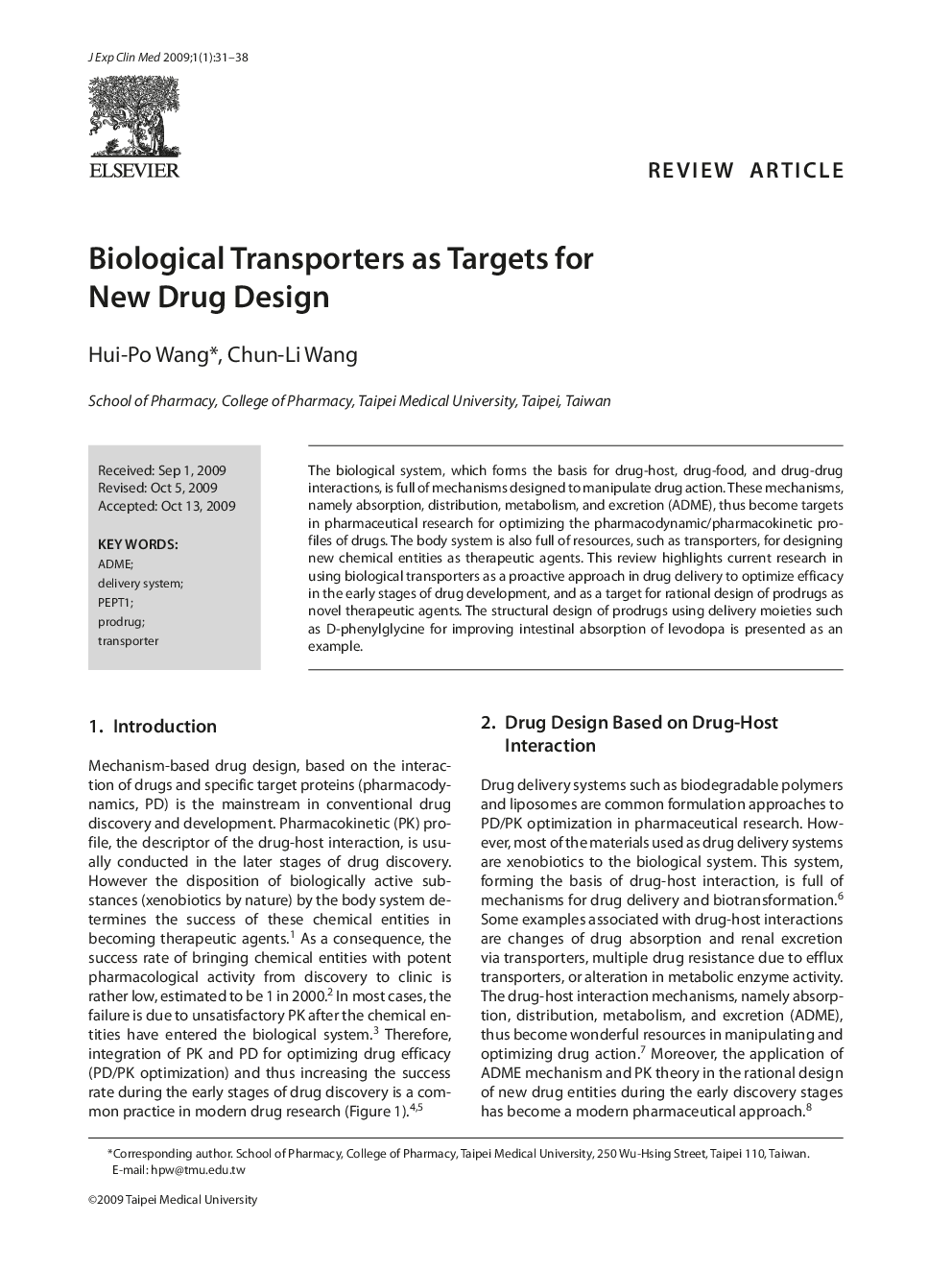| Article ID | Journal | Published Year | Pages | File Type |
|---|---|---|---|---|
| 3478146 | Journal of Experimental & Clinical Medicine | 2009 | 8 Pages |
The biological system, which forms the basis for drug-host, drug-food, and drug-drug interactions, is full of mechanisms designed to manipulate drug action. These mechanisms, namely absorption, distribution, metabolism, and excretion (ADME), thus become targets in pharmaceutical research for optimizing the pharmacodynamic/pharmacokinetic profiles of drugs. The body system is also full of resources, such as transporters, for designing new chemical entities as therapeutic agents. This review highlights current research in using biological transporters as a proactive approach in drug delivery to optimize efficacy in the early stages of drug development, and as a target for rational design of prodrugs as novel therapeutic agents. The structural design of prodrugs using delivery moieties such as D-phenylglycine for improving intestinal absorption of levodopa is presented as an example.
